In this article, I will explore the best crypto tax tools for bridging transactions, focusing on how they simplify tracking, reporting, and compliance across multiple blockchains.
Bridging often causes confusion in tax calculations, but with the right tools, you can avoid errors, prevent double-counting, and ensure accurate tax reporting while managing cross-chain crypto activities efficiently.
How To Choose 10 Crypto Tax Tools For Bridging Transactions
Cross-Chain & Bridge Support – Select software that accurately identifies cross-chain bridges to avoid inadvertent tax events and redundant transaction entries.
Integration Coverage – Confirm that the solution covers all wallets, centralized exchanges, and DeFi protocols across relevant chains to ensure complete record-keeping.
Accuracy of Reports – Opt for a platform that appropriately categorizes transfers, swaps, and bridges, and permits adjustments for transaction-level verification.
Regional Tax Compliance – Validate that the tool adheres to the tax regulations prevailing in your jurisdiction, generating jurisdictionally-acceptable documentation and reports.
DeFi & NFT Support – Choose a solution capable of accounting for yield farming, liquidity pools, NFT sales, and multi-chain bridging without exceptions.
Ease of Use – Prioritize intuitive interfaces, streamlined navigation, and easily interpretable gain and loss presentations across a high transaction volume.
Pricing & Plans – Assess billing models: transaction-based fees versus unlimited annual subscriptions; ensure total costs align with your transaction profile.
Audit & Export Options – Pick software offering comprehensive CSV and PDF exports, detailed audit logs, and reports formatted for accountant verification.
Key Points & Crypto Tax Tools For Bridging Transactions List
| Crypto Tax Tool | Key Point (for Bridging Transactions) |
|---|---|
| Koinly | Supports tracking cross-chain bridges, DeFi, and NFTs; auto-imports from 700+ integrations. |
| CoinTracking | Handles complex transactions including swaps and bridges; detailed tax reports for 100+ countries. |
| TokenTax | Auto-detects cross-chain transfers to avoid double-counting; supports all major exchanges and wallets. |
| Accointing | Visual portfolio tracker with bridge and swap recognition; generates easy tax reports. |
| ZenLedger | Syncs DeFi, staking, and bridging activities; IRS-ready reports with loss harvesting. |
| CryptoTaxCalculator | Advanced rules engine that identifies cross-chain swaps and bridges; supports 300k+ tokens. |
| CoinLedger (formerly CryptoTrader.Tax) | Auto-matches wallet transfers (including bridges) to avoid taxable errors. |
| TaxBit | IRS-approved; integrates with wallets, bridges, and exchanges; clear gain/loss breakdown. |
| Bitwave | Enterprise-grade tool with bridge and multi-chain support; real-time crypto accounting. |
| Ledgible Crypto Tax | Professional-focused platform with support for cross-chain bridging and institutional compliance. |
10 Crypto Tax Tools For Bridging Transactions
1.Koinly
Koinly ranks among the leading cryptocurrency tax platforms, offering seamless handling of cross-chain bridging, token swaps, and intricate decentralized finance activity.
The service ingests transactional data from over 700 supported sources—exchanges, wallets, and protocols—thereby automatically recognizing the movement of assets across different chains to eliminate potential double-entry errors.
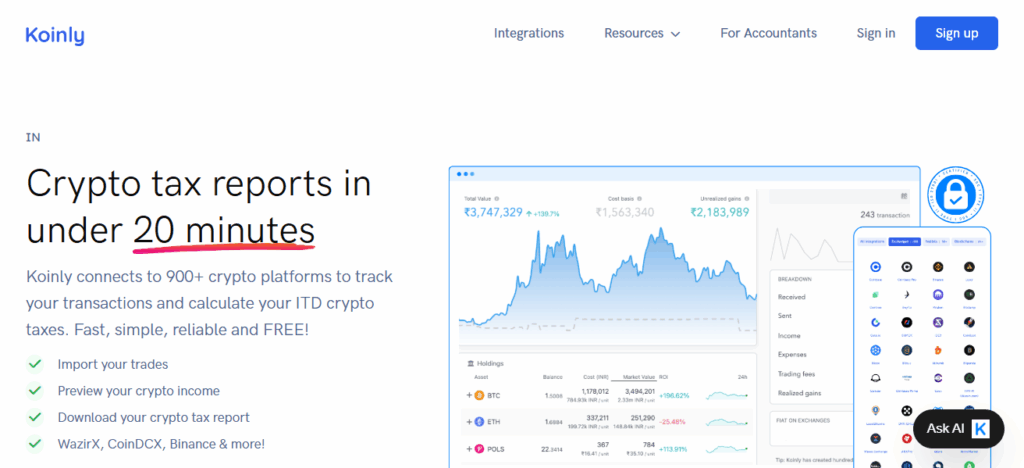
It calculates the precise cost basis for bridging trades and produces jurisdiction-compliant tax summaries for more than 100 countries.
Koinly’s intuitive interface, live portfolio insights, and built-in error notifications cater both to casual hodlers and professional accountants managing diversified, multi-chain portfolios.
| Pros | Cons |
|---|---|
| Supports bridging and multi-chain swaps with auto-transfer matching | Advanced features may feel overwhelming for beginners |
| 700+ integrations with wallets, exchanges, blockchains | Pricing increases with high transaction volume |
| Region-specific tax reports for 100+ countries | Limited enterprise features compared to business-focused tools |
| User-friendly dashboard with error detection | Some manual corrections still needed for complex DeFi cases |
2.CoinTracking
CoinTracking serves as a robust investment compliance suite for discerning traders and DeFi participants whose activity frequently involves cross-chain bridging.
The tool covers upwards of 13,000 cryptocurrencies and leverages more than 70 integrated exchanges, permitting continual data synchronization alongside user-defined tax logic.
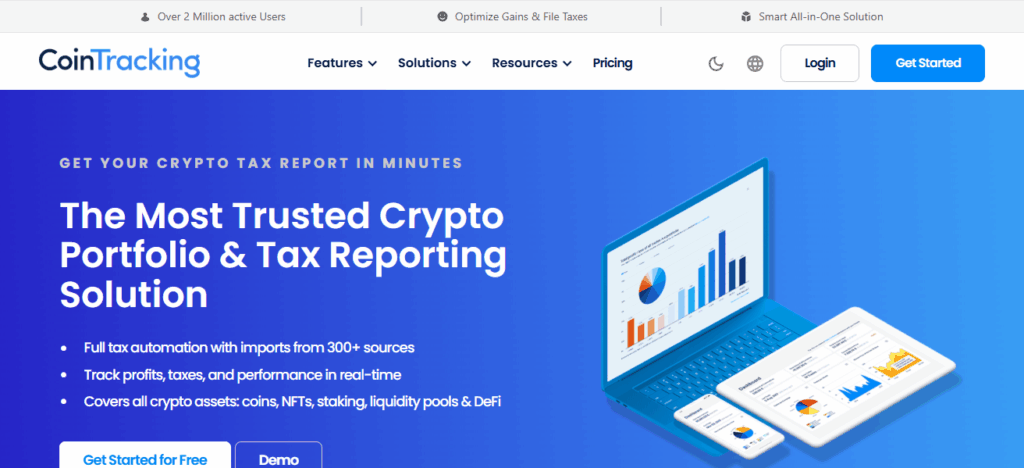
Through meticulous identification of wallet-to-wallet movements, the platform accurately categorizes bridging events to preempt double-gain pitfalls.
Comprehensive reports, trend analytics, and multi-national tax treatment further reinforce its status as the platform of choice for high-frequency users traversing fragmented Ethereum, Binance Smart Chain, and layer-two environments.
| Pros | Cons |
|---|---|
| Handles complex bridging, swaps, and transfers | Interface can be confusing for new users |
| Supports 13,000+ coins and 70+ exchanges | Steeper learning curve compared to simpler tools |
| Multiple tax methods and strong analytics | Higher pricing for professional-grade features |
| Excellent for high-volume traders | May require manual edits for niche tokens |
3.TokenTax
TokenTax caters to traders who require enterprise-grade precision for crypto taxation, particularly for bridging and multi-chain operations.
The platform assimilates data from all leading exchanges and wallets, intelligently identifying cross-chain movements to avert duplicated taxable events.
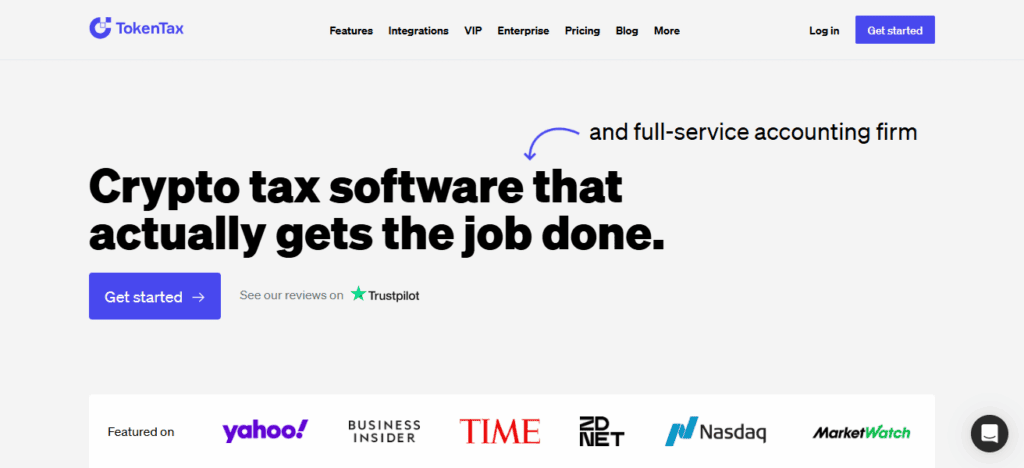
Its core advantage is bespoke tax documentation, encompassing sophisticated DeFi, NFT, and liquidity pool transactions.
In addition to robust software, TokenTax offers CPA-verified advisory services, thus accommodating clients who need specialist assistance in executing intricate bridging deals or in assembling jurisdiction-specific returns for regulatory compliance.
| Pros | Cons |
|---|---|
| Auto-detects cross-chain transfers to prevent double-counting | Expensive compared to other tax tools |
| CPA-assisted services available for complex cases | Interface less modern than competitors |
| Strong support for DeFi, NFTs, and liquidity pools | Limited free features, most useful tools are paid |
| Tailored tax reporting by region | Best suited for advanced or professional users |
4.Accointing
Accointing delivers an intuitive cryptocurrency tax and portfolio management application that excels in bridging situations spanning different blockchains.
Its streamlined interface provides an at-a-glance view of asset performance, accrued tax liabilities, and cross-chain bridging activity, all updated in real time.
The software automatically correlates transactions across wallets and bridges, mitigating the risk of erroneous taxable event reporting.
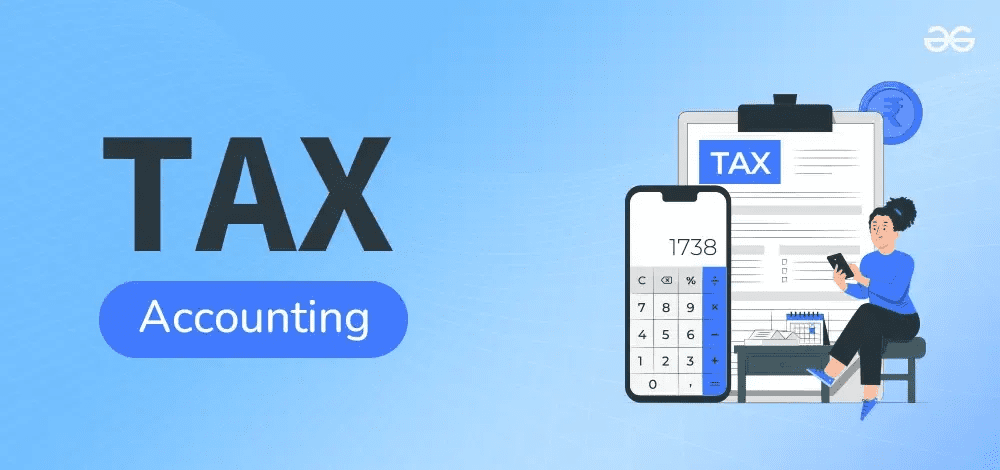
It further supplies country-specific tax documentation templates and offers straightforward CSV and PDF exports. The platform is particularly attractive to retail traders and investors who value straightforward, precise, and transparent monitoring of their multi-chain movements.
| Pros | Cons |
|---|---|
| Simple, user-friendly dashboard for beginners | Not as advanced for enterprise use |
| Visual portfolio tracking and tax visualization | Limited advanced DeFi support |
| Auto-detects bridging and wallet transfers | Regional tax support not as broad as Koinly |
| Affordable plans for casual traders | Fewer integrations than top-tier competitors |
5.ZenLedger
ZenLedger streamlines crypto tax compliance by automating tracking for bridging, DeFi, staking, and NFT activity through direct integration with wallets and exchanges.
It automatically identifies wallet-to-wallet transfers that occur during bridging, thus preventing double-counting and ensuring that the taxable deemed gain or loss is precisely as intended.
The platform further incorporates tax-loss harvesting tools that allow users to strategically realize losses in high-frequency trading environments.
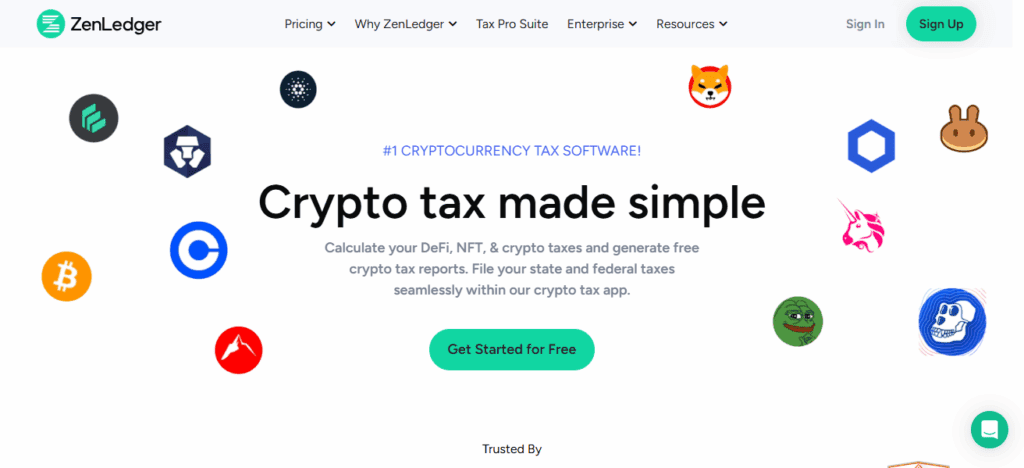
ZenLedger produces IRS-validated tax forms, interfaces directly with TurboTax, and provides audit assistance, positioning itself as an authoritative solution for U.S. taxpayers engaged in cross-chain swaps, staking rewards, or assets moved through cross-chain bridges.
| Pros | Cons |
|---|---|
| Recognizes bridging transactions and prevents errors | Primarily focused on U.S. tax compliance |
| Tax-loss harvesting tools included | Pricing higher for large transaction volumes |
| Direct TurboTax integration | Interface less sleek compared to newer platforms |
| Audit and IRS-ready reports | Limited global support beyond U.S. regulations |
6.CryptoTaxCalculator
CryptoTaxCalculator concentrates on the complexities of crypto taxation, catering to bridging, multi-chain swaps, and elaborate DeFi workflows. It deploys a sophisticated, rules-based transaction engine that classifies each event, segregating taxable occurrences from non-qualifying transfers.
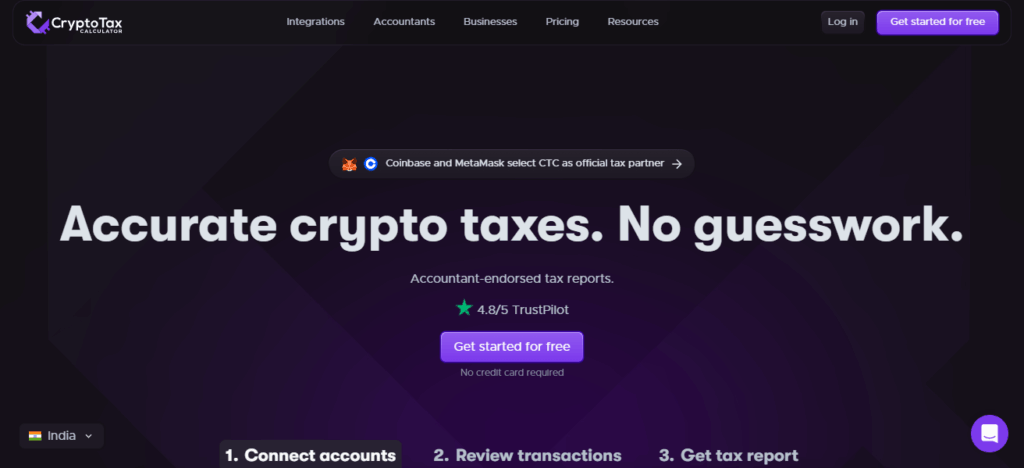
Backed by a library exceeding 300,000 tokens, it ensures exhaustive monitoring of cross-chain bridging. Users can generate jurisdiction-specific tax reports, amend any incorrectly classified events, and export reconciled data suited for accounting review.
The combination of granular classification and multi-jurisdiction adaptability renders the platform indispensable for sophisticated investors routinely executing desynchronized asset transfers among heterogeneous blockchain environments.
| Pros | Cons |
|---|---|
| Advanced rules engine for complex bridging | Steeper learning curve for casual users |
| Supports 300,000+ tokens | Pricing increases with transaction counts |
| Country-specific tax compliance | Requires manual review for highly complex DeFi |
| Flexible transaction editing | Dashboard less polished than competitors |
7.CoinLedger (formerly CryptoTrader.Tax)
CoinLedger emphasizes ease of use while maintaining precision. The software synchronizes transaction data across wallets, exchanges, and DeFi activities—including bridging transactions—using automatic data imports.
By identifying and matching wallet-to-wallet transfers, the platform prevents misclassification of cross-chain swaps, thereby safeguarding against unwarranted tax liabilities.
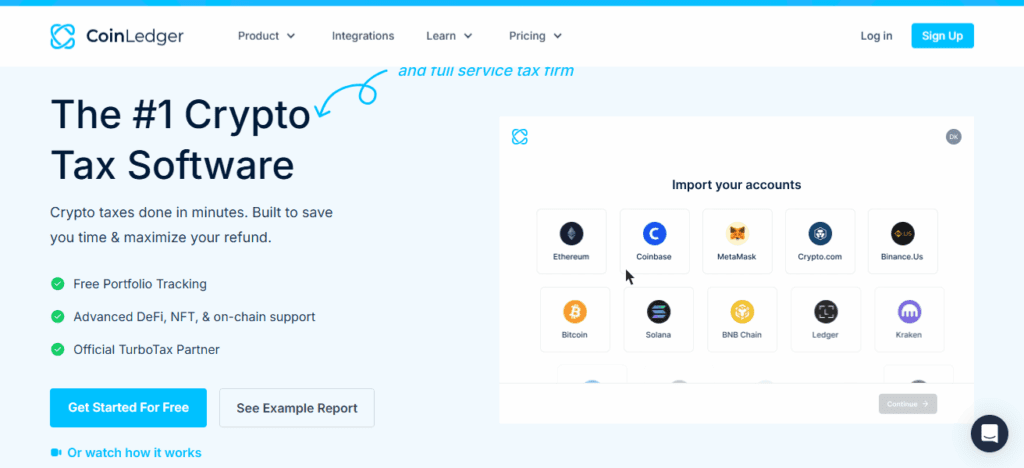
Users receive immediate gain/loss summaries, the ability to harvest losses on-demand, and seamless TurboTax export for streamlined filing.
The transparent flat-rate pricing structure and user-friendly dashboard appeal particularly to retail investors and traders who regularly bridge assets and prefer automated, audit-ready reports over manual data adjustments.
| Pros | Cons |
|---|---|
| Matches wallet-to-wallet transfers, including bridging | Limited enterprise features |
| Direct TurboTax integration for easy filing | Flat annual plans may be costly for light users |
| Simple interface, beginner-friendly | Less advanced for complex DeFi/NFTs |
| Affordable and transparent pricing | Fewer advanced tax customization options |
8.TaxBit
TaxBit, recognized as IRS-compliant software, caters to individuals and enterprises with approval and oversight mechanisms fully aligned with governmental guidelines.
Scheduling and importing bridging transactions occurs through direct connections to wallets and exchanges, resulting in accurate classification of inter-chain transfers and prevention of tax duplication.
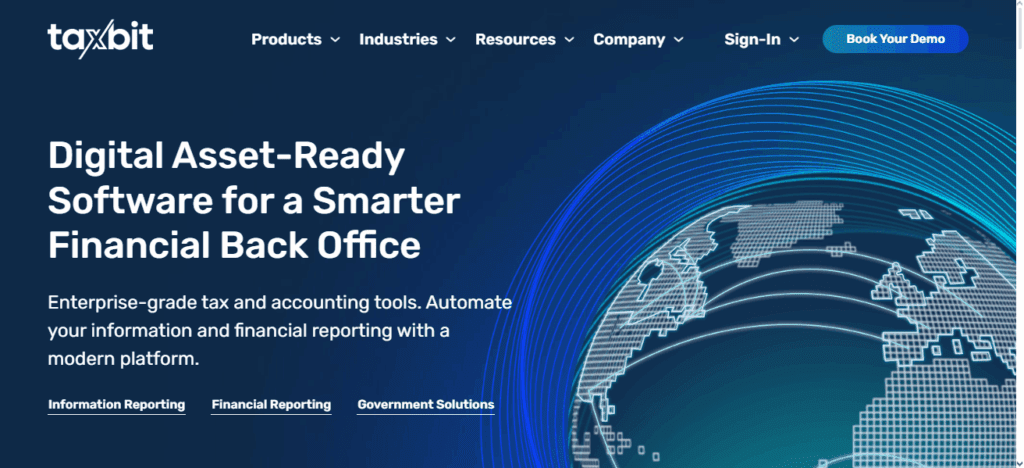
The platform details adjusted cost basis, realized and unrealized capital gains, and losses in a multi-chain context. An emphasis on regulatory compliance makes TaxBit attractive to both representative U.S. individual users and institutional auditors.
Comprehensive reports and features designed for audit readiness, combined with customizable scalability for enterprise clients, render the software a prudent selection for users who consistently execute cross-chain bridging.
| Pros | Cons |
|---|---|
| IRS-approved with strong compliance | Primarily U.S.-centric |
| Correctly classifies bridging and multi-chain transfers | Pricing higher for enterprise features |
| Audit-ready reporting with clear cost basis | Limited advanced DeFi handling compared to competitors |
| Suitable for both individuals and enterprises | Less intuitive than Koinly or Accointing |
9.Bitwave
Bitwave delivers a regulated accounting and tax engine tailored specifically for enterprises conducting extensive, multi-chain crypto operations.
The platform specializes in real-time tracking, automated ledger generation, and precise recognition of cross-chain asset flows, making it particularly advantageous for businesses whose activity includes constant bridging.
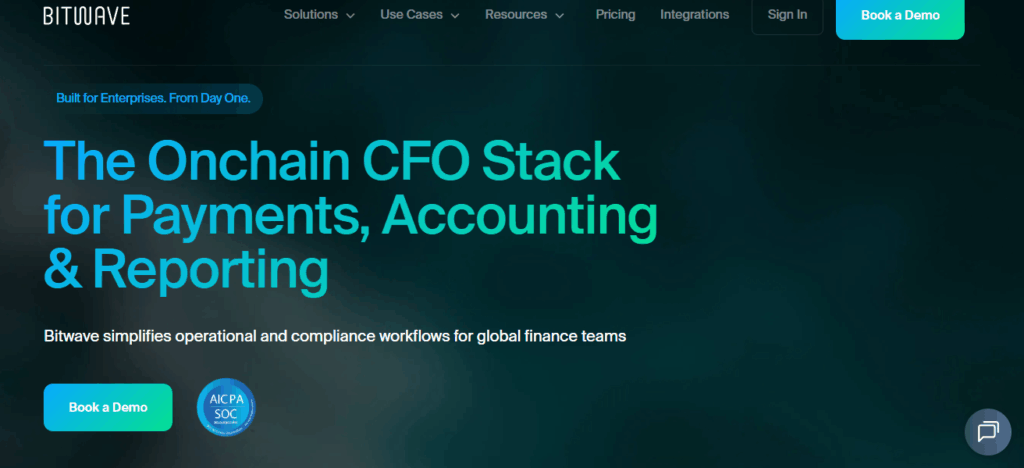
Distancing itself from consumer-grade offerings, Bitwave enforces adherence to corporate tax law, embedding itself within ERP ecosystems like QuickBooks and NetSuite.
When processing bridging transactions, Bitwave guarantees care in categorization and presentation, thus empowering firms to scale crypto operations without breaching regulatory or tax obligations.
| Pros | Cons |
|---|---|
| Enterprise-grade support for bridging and multi-chain | Not ideal for individual traders |
| Real-time accounting and bookkeeping | Complex setup process for small users |
| ERP integration (QuickBooks, NetSuite) | Pricing tailored for businesses, not retail |
| Strong compliance and audit support | Steeper learning curve for non-professionals |
10.Ledgible Crypto Tax
Ledgible Crypto Tax provides a professional, high-definition tax and accounting platform robust enough to service bridging, DeFi, and institutional-grade activity. Accepting input from leading wallets, exchanges, and blockchains, it records cross-chain movement within a unified ledger.
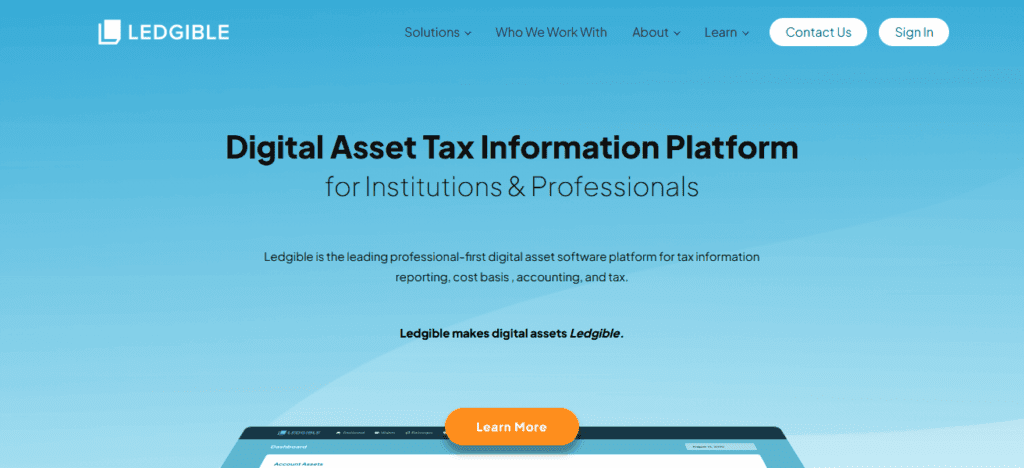
Crafted for tax practitioners and enterprises, Ledgible furnishes granular reports, audit enablement, and built-in interface to standard accounting suites. The platform’s precise handling of bridging classifications curtails manual revisions, bolstering compliance flows.
With a repository of enterprise functionality, Ledgible is indispensable for accountants, financial institutions, and professional trading desks whose operations demand flawless tax calibration.
| Pros | Cons |
|---|---|
| Professional-grade platform with bridging support | More suited to accountants and enterprises |
| Strong compliance and institutional focus | Less beginner-friendly than Koinly or CoinLedger |
| Integrates with major accounting software | Interface less polished for casual users |
| Detailed audit support and tax reporting | Pricing higher for advanced users |
Conclsuion
To summarize, cryptocurrency tax applications effectively remove friction from the tracking stage by delivering precise, audit-ready reporting across multiple blockchain ecosystems.
For novice users, Koinly and CoinLedger provide straightforward, transparent workflows; more experienced taxpayers may evaluate TokenTax, Bitwave, or Ledgible for deeper functionalities and regulatory assurance.
The optimal platform is determined by transaction volume, jurisdictional tax requirements, and the preference for user-friendly or institutional-scale capabilities.
FAQ
No, bridging is usually a transfer, not taxable—but tools must classify it correctly.
It avoids double-counting and ensures cross-chain transfers aren’t taxed as trades.
Yes, most major platforms also track DeFi, staking, and NFTs alongside bridges.













